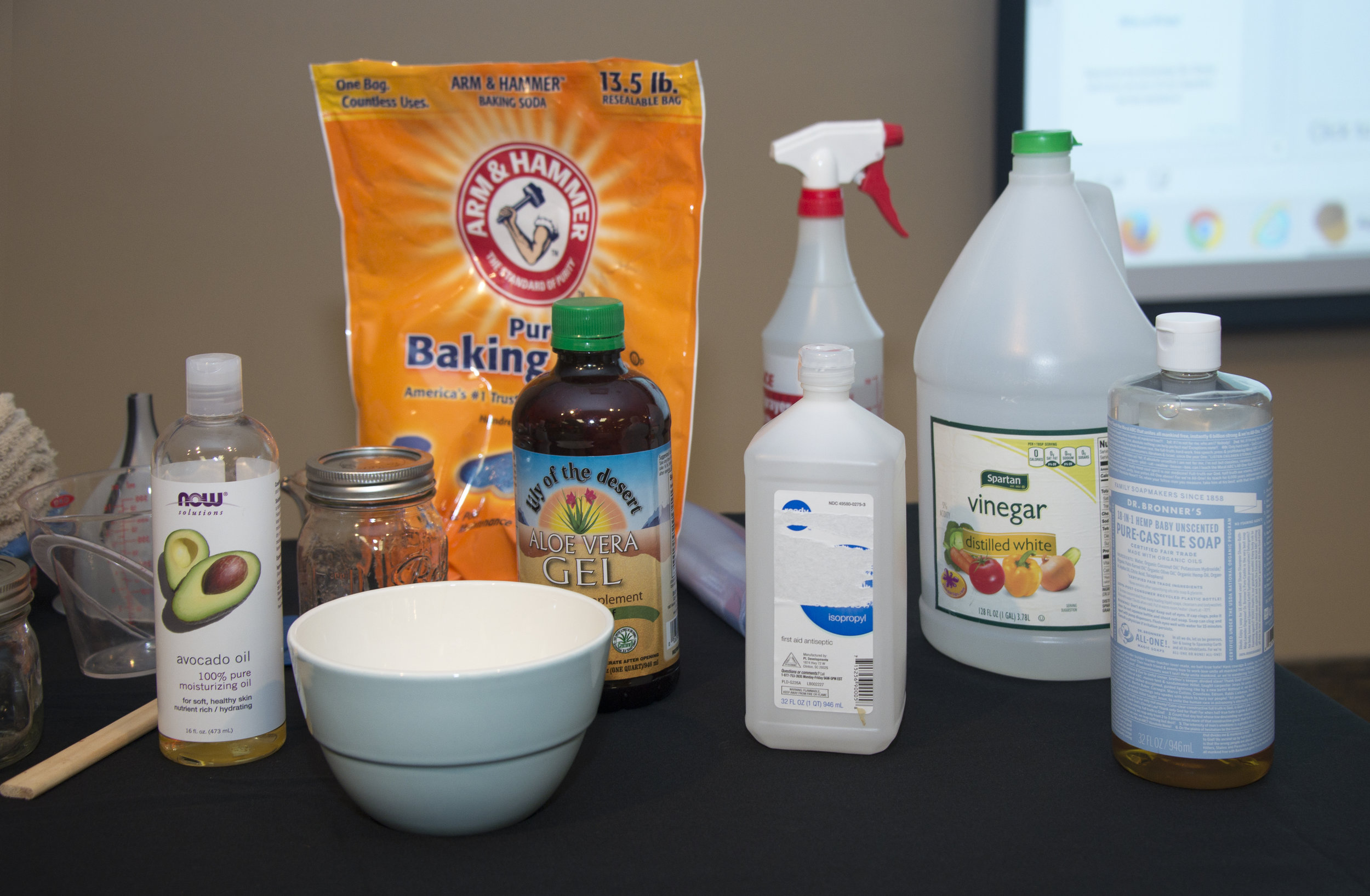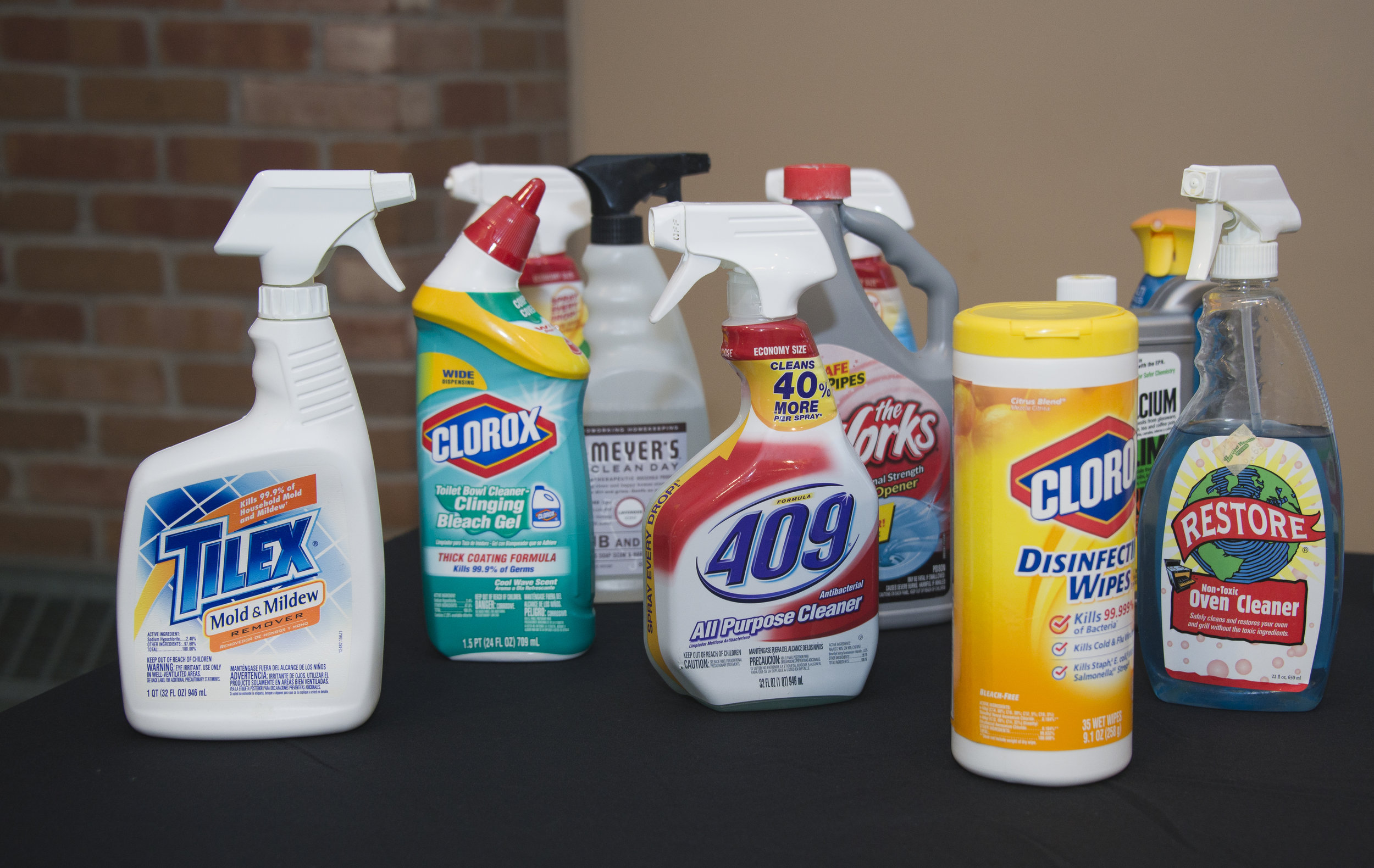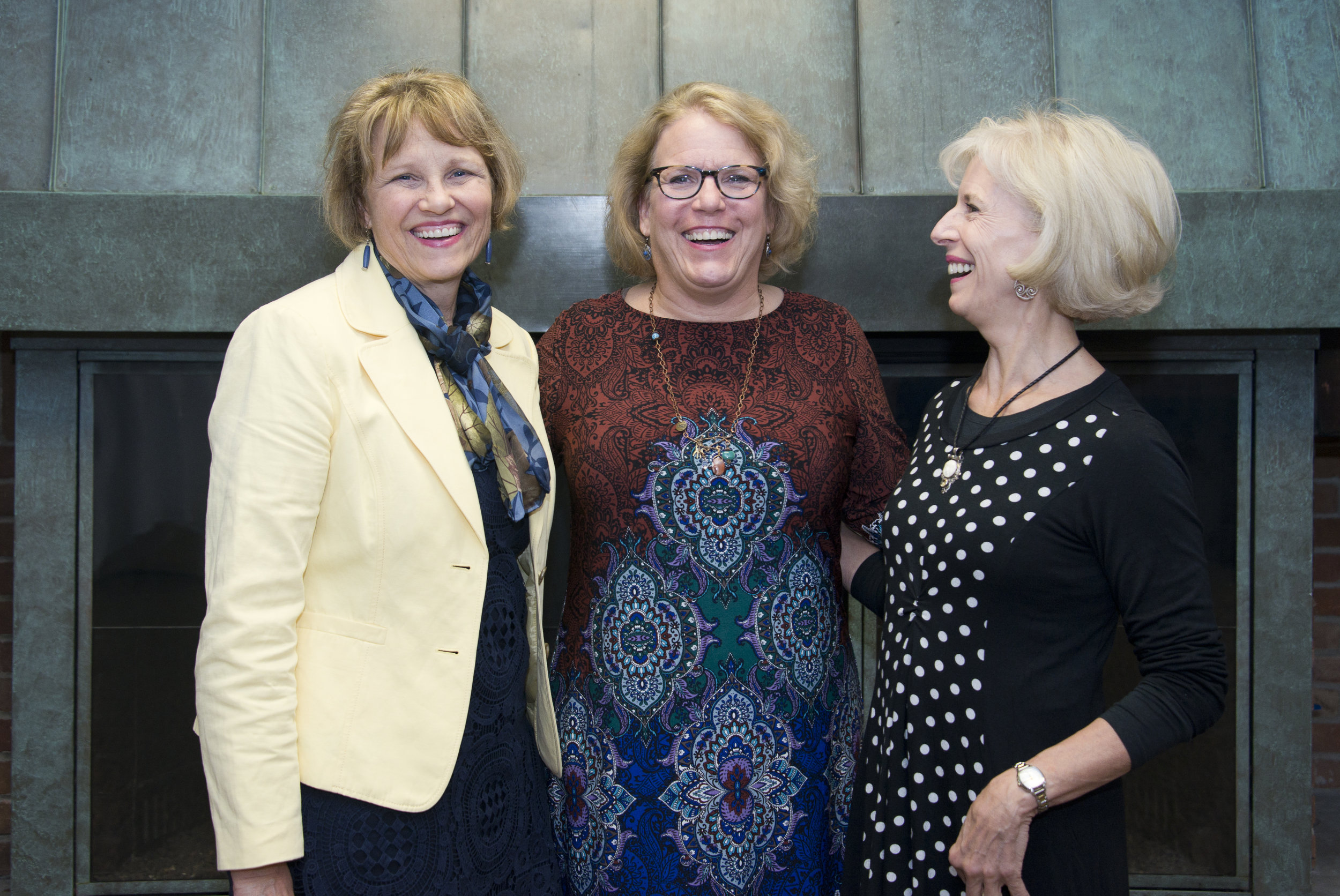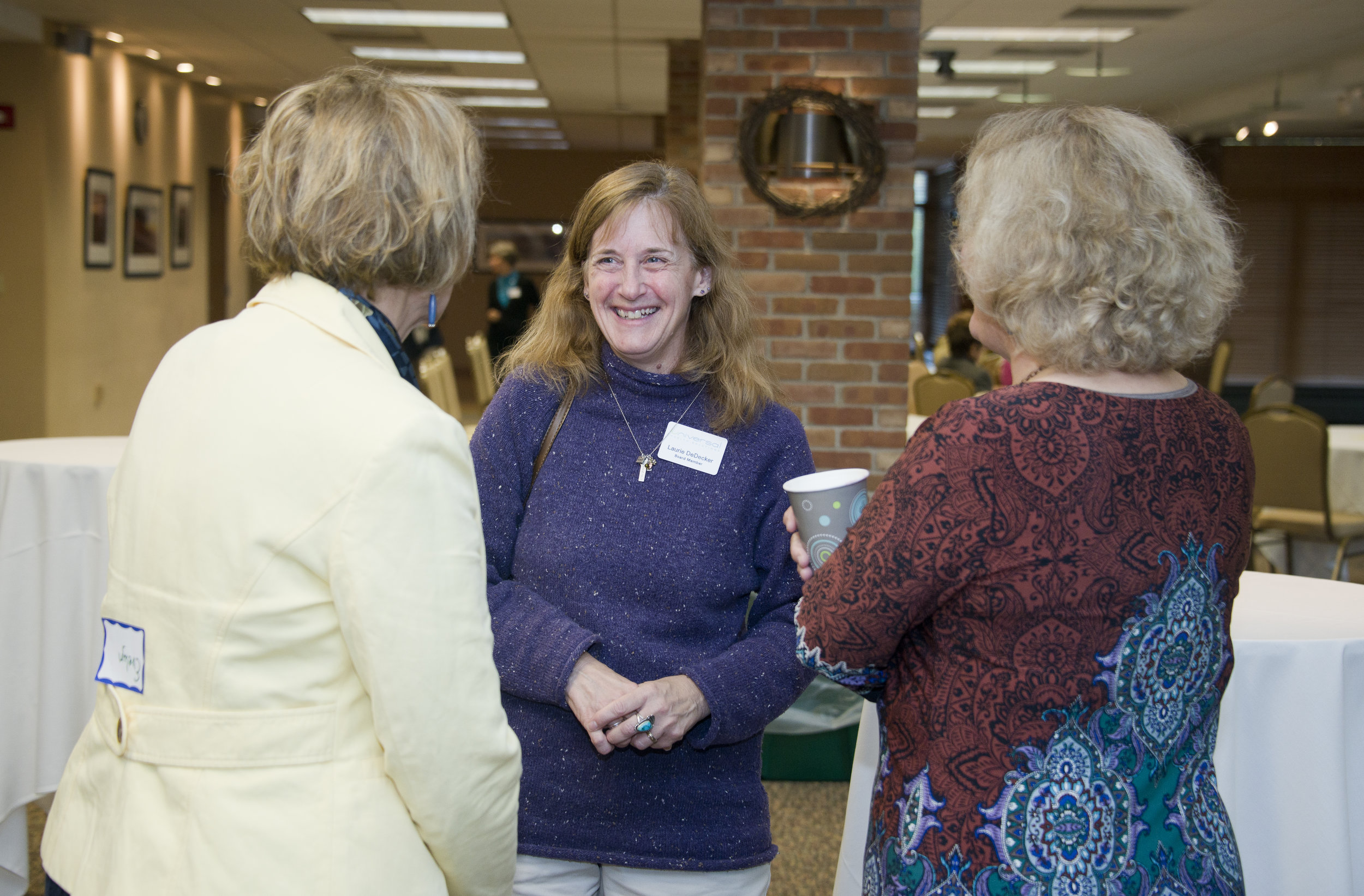About:
Are you aware that many of the everyday products you use to clean your home are toxic to you, your children, and your pets, and pose a threat to the environment? Household cleaning products are among the top five reasons for calls to poison control centers in the U.S., according to a 2010 report. In fact, many household cleaning substances contain volatile organic compounds (VOCs), which pose a threat to our health, and are a significant reason that indoor air can be more polluted than outdoor air.
So what should a health- and environmentally-conscious person do? Why clean green, of course! Cleaning with safe, non-toxic, and environmentally friendly products, or “green cleaning,” can also save you money, time, and reduce the number of products needed around the house. In this informative session, participants learned about some of the toxins that are in most homes, why it’s important to reduce or eliminate them, and learned some basic recipes for safe cleaning solutions using everyday ingredients.
Speaker:
Life is always an adventure! Rewarding. Challenging. Disappointing. Amazing! And, always an adventure. On her own at an early age, Gayla Jewell, PhD, NP completed her bachelor’s and master’s in nursing and embarked on a clinical and teaching career. This took her from labor and delivery to intensive care to a university position and clinical practice as a nurse practitioner. Over the years, she raised two daughters, provided care in Zimbabwe and Nicaragua, spoke at conferences in various countries and completed her PhD in Medical Sociology. Holistic health and environmentally safe health are threaded through all her endeavors. Today, she is an energy worker practicing Reiki, Zero Balancing, Aromatherapy and other methods.
Moderator:
Evelyn Clingerman, PhD, CNE, RN, FNAP is the Executive Director of The Bonnie Wesorick Center for Health Care Transformation in Kirkhof College of Nursing at Grand Valley State University. Dr. Clingerman leads the Center in its mission to transform healthcare through interprofessional collaboration that brings education and practice together around scholarly research and projects. Dr. Clingerman also leads the Interprofessional Institute of Polarity Thinking in Healthcare as she consults, develops research and projects, provides workshops and teaches a course in polarity thinking. Her knowledge of nursing practice experiences, founded upon patient, family and community experiences across the continuum of care, emphasize community care for underserved and vulnerable populations.
















